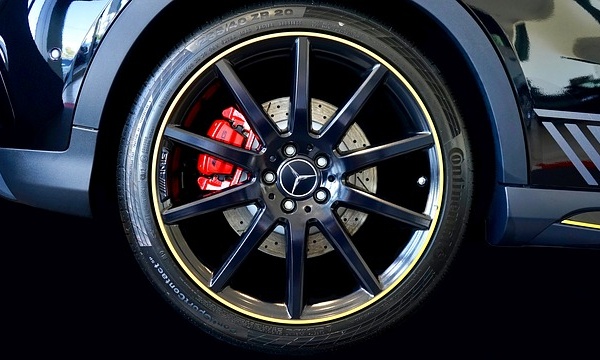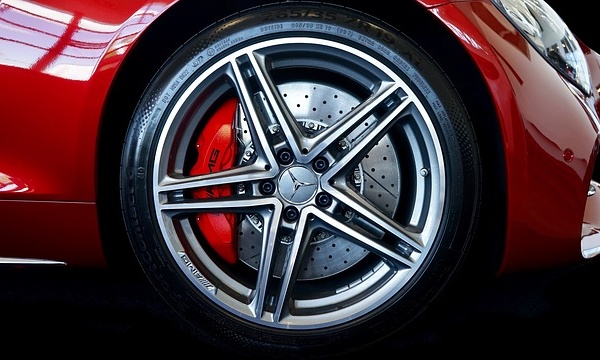We’re now out of January, the evenings are steadily getting lighter and the days are getting longer. In the coming months, you may be contemplating making some new additions and this may extend to purchasing a new car. Before you make any hasty decisions, read through Dr Alloy’s tips and learn how to secure the best price.
For many, purchasing a car will be one of the biggest purchases in their lifetime only generally surpassed by purchasing a property. Purchasing a car is a massive decision, and one that mustn’t be taken lightly. Regardless of whether it’s new or used, making the wrong decision can have adverse implications. Many are told to haggle or negotiate to get the best possible price, but very few are actually able to achieve this with many feeling uncomfortable at the thought.
Preparation on what car you actually want.
When you walk into a garage or dealership you’ll invariably be greeted by a salesman. It often helps both parties if you’ve got a rough idea on what type of car/model you actually want. Before going in, always have a look on the internet – what cars have you driven previously? Have you been recommended a particular model by a friend or work colleague? Is there a particular model that is capturing your attention? All this information should be at the forefront of your mind at the beginning of your car-buying process.
When you get to test-drive a particular make or model, or even looking at them online, pay specific attention to which aspects of the vehicle you like. It’s always worth having a pen and paper to hand to compile a list of positives/negatives to eliminate each make/model one by one. This will not only help you stay focused in the show room but will also display confidence and authority to the sales man. Remember some sales staff are there to “up-sell” particular models. If you go in with a clear focus, it will benefit you in the long run.
Price preparation is key
If only it was as simple as walking into a dealership and negotiating. Before you can do anything, you (the buyer) need to know what the RRP of the car is. The first step for this is to check the official manufacturer’s website, and maybe have a look at a few brochures or gauge online pricing. It is crucial to check the specification for the particular model. You can have a different series and optional extras outside the manufacturer’s RRP, and by doing this will put you in a strong position to negotiate.
How much can you afford?
It sounds an obvious question I know, but think about exactly how much you can afford to spend on a car. Take into account all your monthly expenses, such as your outgoings, utility bills, rent, mortgage etc. and factor that in. Remain realistic, it’s better to over budget as opposed to under budget and come up short as a result. Have you got any life style changes on the horizon? If so, factor these in now and you’ll find it easier to budget in preparation for when it actively does materialise.
Be cautious of “special deals” on lower specification models
If you do have your heart set on a particular model, be cautious of special deals on lower-specification cars. It seldom happens that a salesman will actively go out of their way to save you money. In the event they do, it will invariably be for the benefit of the dealer rather than the customer. Suggesting an alternative model is often more beneficial to the dealer than it is to you.
Factor in the running costs
It’s not just a case of purchasing the car, but also maintaining it. Have you considered the running costs? Write down costs of how much you’ll be able to afford for insurance, petrol and servicing.
For many, purchasing a brand new car fresh off the production line isn’t realistic due to the outlay. However tempting and alluring it may be, remember that the biggest depreciation in the value of a car comes in the first 12 months, so if you are contemplating purchasing a one year old vehicle you will significantly save yourself lots of ££££ not to mention that the vehicle will still have some manufacturer warranty left.
Never lose sight of your objective. You will find some salesman will try to befriend you, you are not there for that, stick to your focus. Your primary objective for visiting the garage or dealership today is to secure the best deal possible, whilst their job is to bring in as much money for the company. It sounds blunt but there is no easy way to look at it. Keep your cards close to your chest and don’t give too much away. Sounds silly, but be pleasant, smile and be nice. Like anything in life people will go out of their way to people who are forthcoming and approachable.
Finance can be your friend
Some people automatically have a negative mindset as soon as you mention the word finance. In the past few years, it’s become increasingly popular and is growing every year. You will generally find it is in a dealer’s interest to up-sell cars on finance as manufactures frequently offer them subsidies and incentives as a result to make these packages seem appealing. In some instances it can be cheaper to use finance provided by the dealership rather than borrowing money from a traditional high street bank.
Do a vehicle check
It you are contemplating an independent purchase, it may be a small additional expense but it can be one of the best things you do. Undertaking a vehicle check uses information from a whole host of sources which includes the DVLA, insurance companies, finance houses and the police. Through this extensive search, the check can show if the car has ever been reported stolen, scrapped or written off. It will also deliver the correct mileage for the car and whether there is any current outstanding finance on the vehicle.
Get equipped with alloy wheel insurance
Now you’ve chosen the vehicle you want it’s time to decide whether you want to get alloy wheel insurance. Damaged alloy wheels can be a costly expense to mend and due to the sheer volume of traffic on the road these days and nature of modern day driving, they can be damaged all too easily. Alloy wheels can change the whole aesthetic appearance to a vehicle and can add to the value of the car itself. Damaged alloys can lower the resale value and we know that even the best drivers in the world are not immune from kerbing their vehicle from time to time.
With almost 3 million new cars sold annually, it’s always worth bearing in mind the above when looking to purchase a new car. Remember you are not under any pressure to commit and don’t feel pressurised. If you’d like some impartial advice or support please contact the team at Dr Alloy. Please comment on your experiences below.



